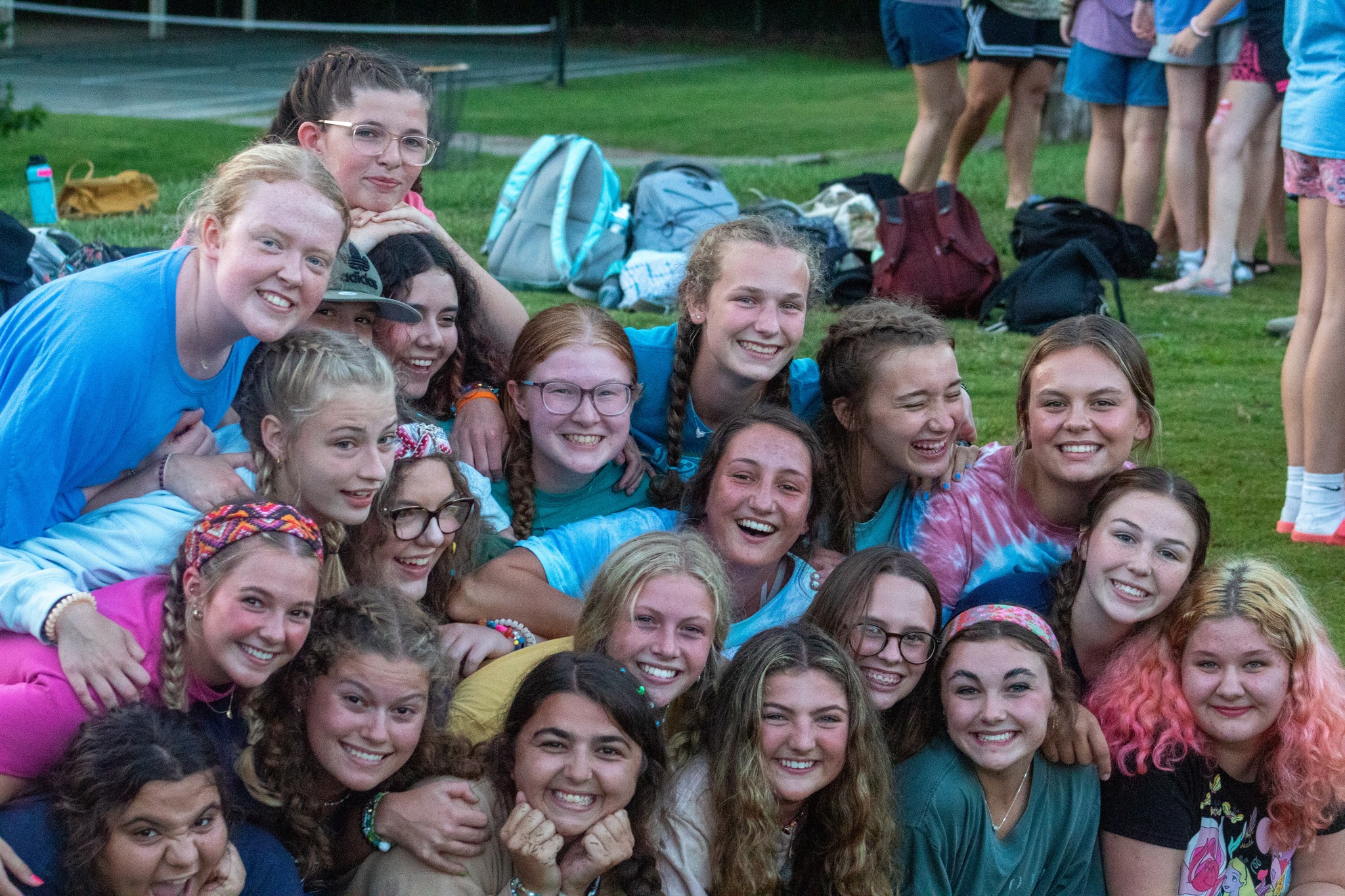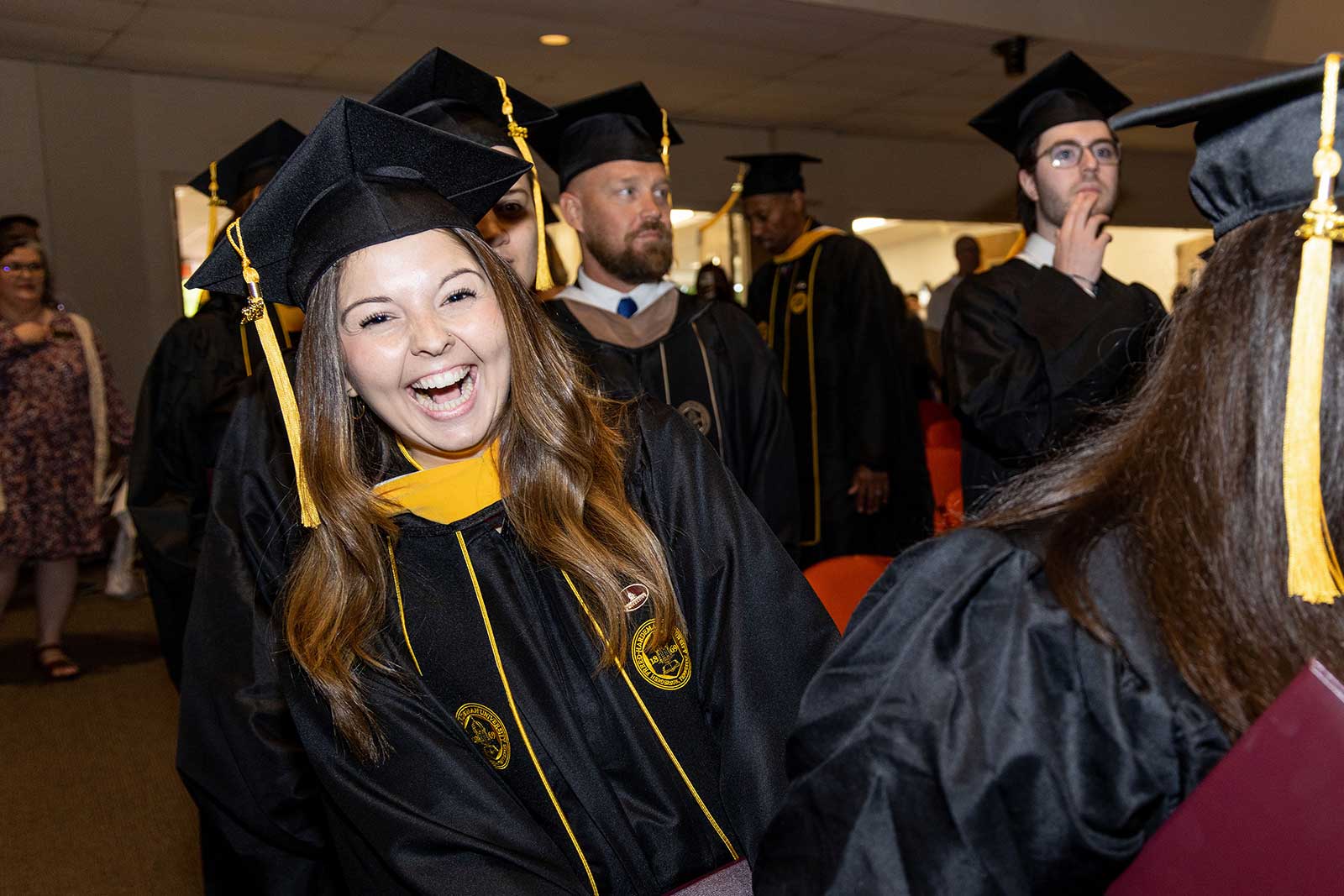Mission & History
Our Identity
Freed-Hardeman University is an academic community, associated with churches of Christ, which is dedicated to providing excellent undergraduate, graduate, and professional programs.

Our Mission & Vision…
The mission of Freed-Hardeman University is to help students develop their God-given talents for His glory by empowering them with an education that integrates Christian faith, scholarship, and service.
Building on our heritage, Freed-Hardeman University will be the preferred academic community for students who seek to grow in faith, knowledge, and service in a changing world.

Our Aims…
In accomplishing its mission, the university pursues the following three aims:
Freed-Hardeman provides higher education with a Christian perspective:
- by recognizing the Bible as the inspired and authoritative Word of God
- by presenting Jesus, the Christ, as the model for personal behavior,
- by viewing each person as a special creation of God, possessing an everlasting soul, with ultimate accountability to God,
- by promoting racial harmony, religious unity, and respect for individual differences through Christian love and biblical teaching, and
- by offering programs, activities, and worship opportunities that strengthen the university community.
Freed-Hardeman provides educational opportunities through excellent undergraduate, graduate, and professional programs:
- by employing a qualified, caring Christian faculty,
- by teaching students to be critical thinkers who communicate effectively,
- by offering a balanced education in the liberal arts and sciences as well as specialization in a chosen discipline,
- by offering engaging academic opportunities to strengthen individual students,
- by equipping students for advanced study and career challenges,
- by instilling in students a lasting desire for learning, and
- by engaging in the scholarship of discovery, integration, application, and/or teaching in ways that are appropriate to its various disciplines of study, degrees awarded, and professional programs.
Freed-Hardeman provides service to the individual, home, church, community, and world:
- by facilitating spiritual, intellectual, social, and physical growth,
- by recognizing the home as the basic unit of society and helping students develop skills for healthy Christian families,
- by encouraging students to love the church and preparing them for active service in a local congregation,
- by offering programs to strengthen and encourage growth of the church, and
- by teaching students to become effective citizens of the local and world communities.
History
Freed-Hardeman University traces its origin to the 1869 charter of a private high school and college for Henderson. The first recorded school in Henderson was taught in the latter half of the 1860s in a frame house located on the property where Hall-Roland Hall and the Old Main Administration Building now stand. It was last headed by A. S. Sayle. The Tennessee legislature, on November 30, 1869, incorporated the Henderson Male and Female Institute in an act which authorized the institute to offer high school and college courses of study and to confer degrees. In 1870, the school opened in a two-story frame building on what is now known as the Milan-Sitka property, where it operated for 15 years. In March of 1877, the legislature changed the name to the Henderson Masonic Male and Female Institute, the nominal term Masonic having come into use earlier. Beginning in 1871, Prof. George M. Savage managed the school, and John Bunyan Inman taught and served as principal for ten years. H. G. Savage was chairman of the faculty while his son, George M. Savage, was away during part of this era.
In August of 1885, the charter of the institute was amended to change the name to West Tennessee Christian College and to change somewhat the membership of the board of trustees. On the first Monday in October, the college opened with J. B. Inman as its president. President Inman died in 1889, and G. A. Lewellen was elected president. Lewellen resigned in 1893, and C. H. Duncan was elected to succeed him. In 1895, Arvy Glenn Freed, an alumnus of Valparaiso University in Indiana who had become, in 1889, the first president of Southern Tennessee Normal College at Essary Springs, Tennessee, became president of West Tennessee Christian College. The name of the college was changed to Georgie Robertson Christian College in 1897. In 1902, Ernest C. McDougle became co-president with Freed, and when Freed resigned in 1905, McDougle continued as president until the college closed at the end of the spring term in 1907.
On May 21, 1907, the National Teachers’ Normal and Business College was incorporated. Construction of the Administration Building began that fall, and the college opened in the fall of 1908 with A.G. Freed as president and N. B. Hardeman, who had studied and taught at Georgie Robertson Christian College, as vice president. The college was renamed for them in 1919. In February of 1990, it became Freed-Hardeman University.
W. Claude Hall served as president and C. P. Roland as dean from 1923 to 1925. In 1925, N.B. Hardeman and Hall C. Calhoun were elected associate presidents. Calhoun resigned at the close of the session, and Hardeman served as president until 1950. He was succeeded by H. A. Dixon, who served until his death in 1969.
E. Claude Gardner became president in December of 1969. He became chancellor in June of 1990 and president emeritus in 1992. Milton R. Sewell, an alumnus who had formerly served as vice president for institutional advancement, succeeded Gardner as president in June 1990.
Dr. Milton Sewell stepped down from the presidency in 2008. He now serves as chancellor. Dr. Joe Wiley, former president of Rogers State University, Claremore, Oklahoma, succeeded him as the fifteenth president. Dr. Wiley was officially inaugurated October 17, 2008.
In October 2016, Dr. Wiley announced his desire to step aside as president, and the trustees formed a presidential succession committee. On April 21, 2017, the Board of Trustees named David R. Shannon, minister with the Mt. Juliet Church of Christ in Mt. Juliet, Tennessee, as the 16th president of Freed-Hardeman University. President Shannon began his duties June 1, 2017.
At various times, Freed-Hardeman University and its predecessors have offered associate, bachelor’s, and advanced degrees. Secondary work was offered until the early 1930s and elementary into the 1940s. From 1925 through 1974, the institution operated as a standard junior college awarding diplomas and, beginning in 1956, associate degrees. Some students continued their studies in Bible for a third year, and junior-level courses in Bible were offered beginning in 1953. In 1974-75, the junior year was added in all departments, and senior-level courses were added in 1975-76. Graduate degree programs in education and in ministry were added during the summer of 1989, and graduate programs in counseling and in New Testament were added in 1994.
